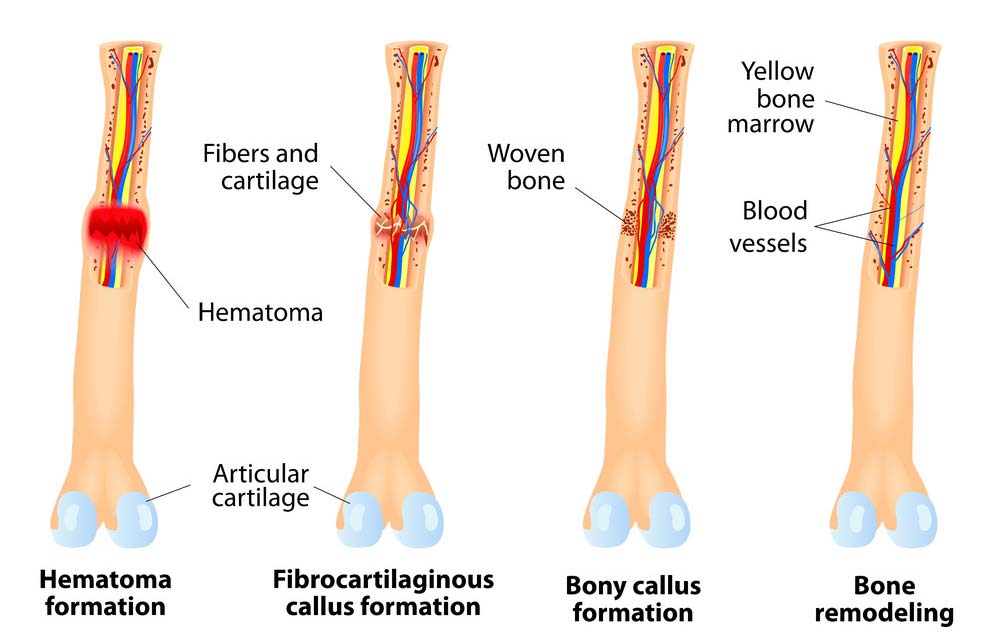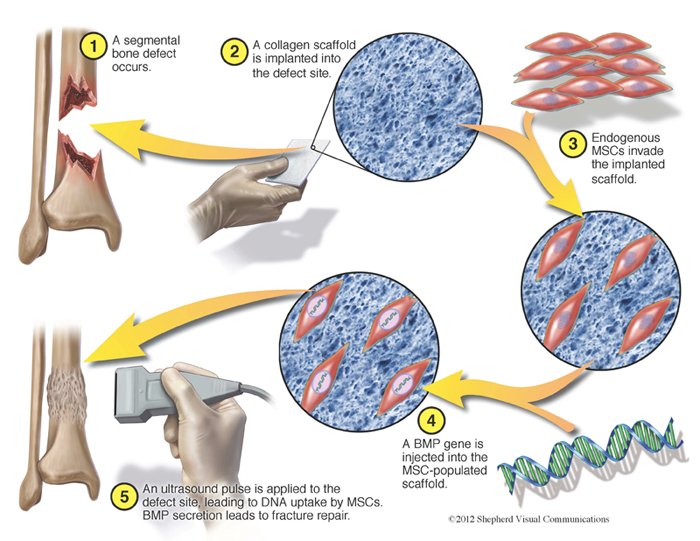Repair bone damage: The bone tissue is one of the most revitalized in the human body. It generates new cells (osteocytes) and destroys the old ones continuously. However, it has great limitations when repairing bone damage or injury, whether due to traumatic injuries or bone defects.
Scientists have developed a simple and efficient way to encourage stem cells to differentiate into bone tissue.

What is this research about?
One of the broadest objectives of the research is to make regenerative treatments more accessible and clinically relevant. They achieve that by developing simple, efficient and cost-effective ways to design human cells and tissues.
This team of researchers have used adenosine, a molecule produced naturally in the body. This allows repairing with this technique cranial bone defects in mice, without these developing tumours or infections.
What do these results mean?
This breakthrough means that the possibility of regenerative treatments is not far away, and that stem cells are the key in these.
Pluripotent stem cells, such as those found in the blood and tissue of the umbilical cord and in the dental pulp, have the ability to differentiate into all cell types of the body. So they are able to cover damage and repair tissues that do not function properly.
While this ability is somewhat hopeful in the world of regenerative medicine. The main challenge is in the stimulation of these cells since it requires a damaged medium to happen naturally. This is why the finding of the team of researchers is so important. Knowing that a naturally occurring molecule can indicate the differentiation of stem cells is a big step in the approach of regenerative therapies.
What is another challenge of this study?
Another challenge is to prevent this regeneration from getting out of control and generating infections or tumours such as teratomas. The researcher’s team have managed to control this differentiation of stem cells into functional osteoblasts (bone-forming cells), with the use of adenosine.
If you want to read more about this innovative treatment click here.
At the London Spine Unit, Harley Street Hospital, we have some of the best specialists in this area. Book a consultation to get a doctor´s checkup.

